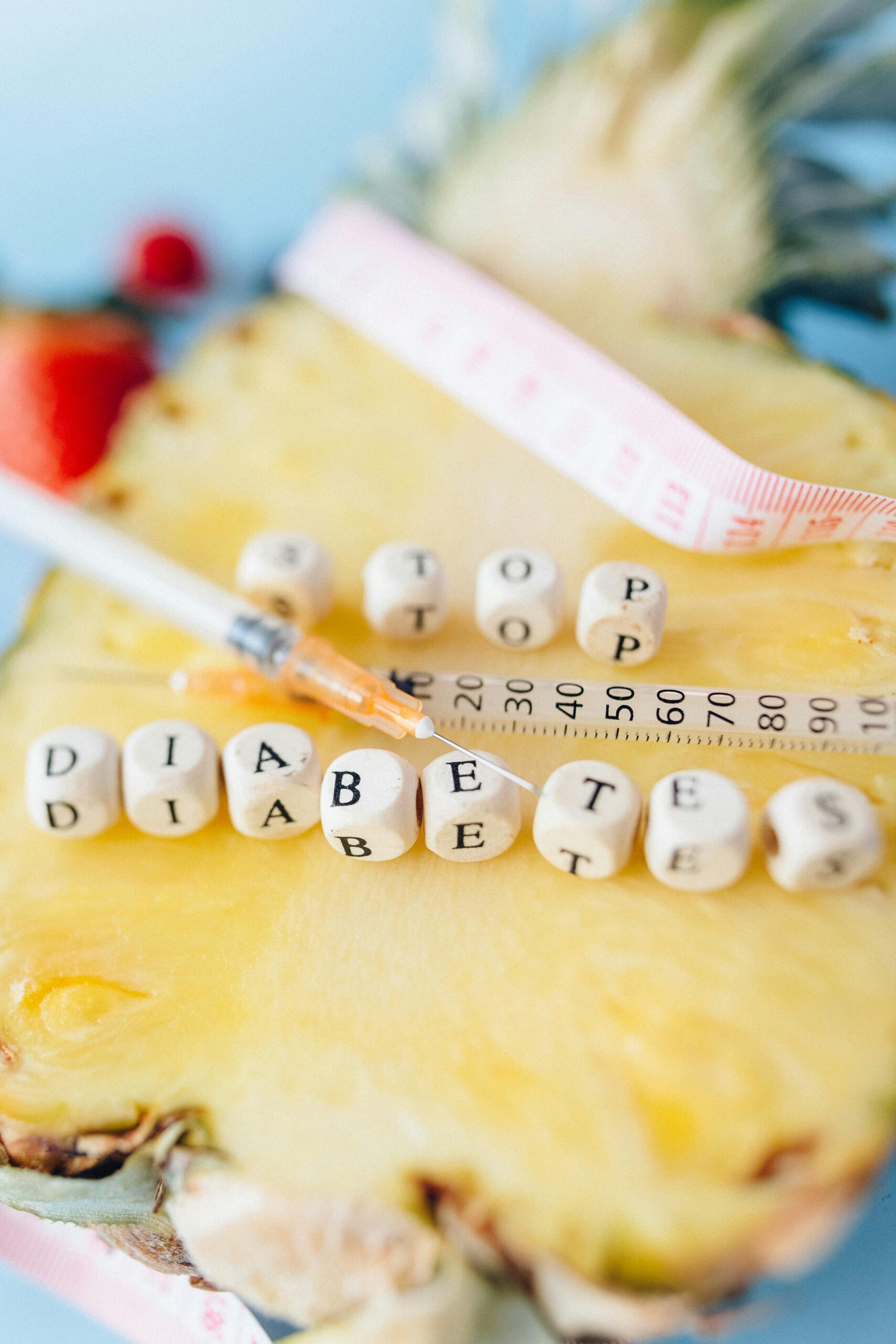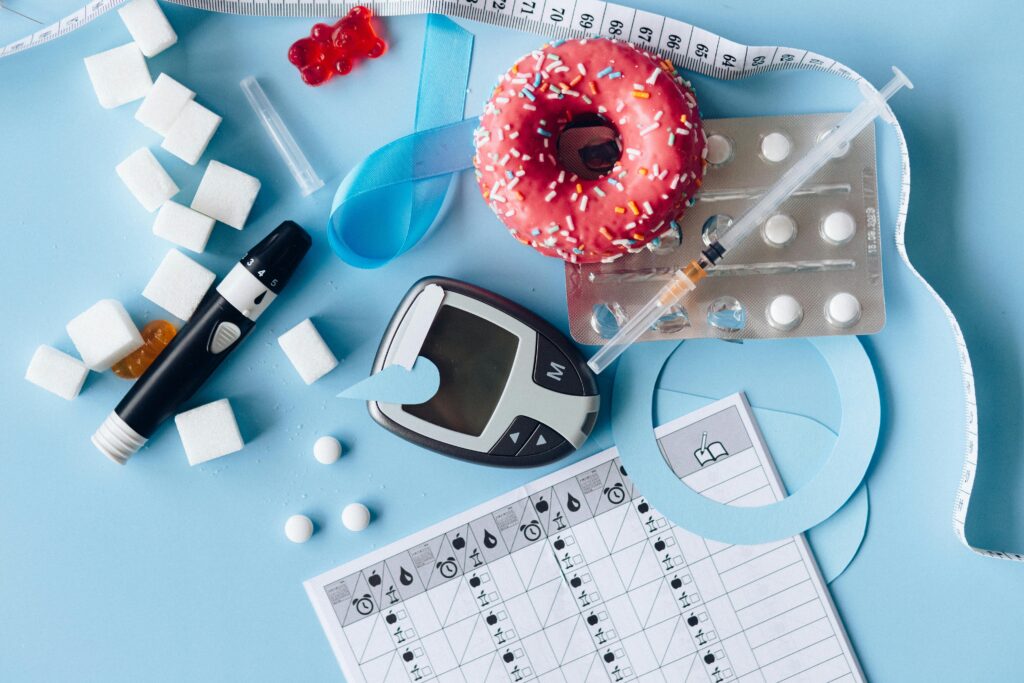Don't miss our holiday offer - up to 50% OFF!

Mastering Insulin Management: 5 Keys to Dominate Diabetes
Table of Contents
Introduction to Insulin and Diabetes
Insulin is a vital hormone for blood sugar regulation. Impaired insulin production or use in diabetes necessitates careful insulin management to minimize health risks.
- 📌 Insulin: A hormone for regulating blood sugar.
- 📌 Diabetes: A condition with inadequate insulin action.
- 📌 Health Complications: Risks arising from unmanaged diabetes.
Understanding Insulin
Insulin acts as a key to help glucose enter cells for energy, and its deficiency leads to elevated blood sugar levels.
- 🗝️ Key Role: Insulin allows glucose into cells.
- 📈 High Blood Sugar: Results from insulin issues.

Insulin's Role in Diabetes
Diabetes types differ in insulin production and usage, affecting blood sugar control.
- 🩸 Type 1 Diabetes: Insufficient insulin production.
- 🩸 Type 2 Diabetes: Ineffective insulin use.
Importance of Insulin Management
Balancing insulin, diet, and exercise is essential for diabetes management to prevent health issues.
- ⚖️ Balance: Insulin doses must align with lifestyle.
- 🍽️ Diet and Exercise: Key factors in insulin management.
Insulin Management Overview:
Managing Risks: Hypoglycemia and Hyperglycemia
Proper insulin use is crucial to avoid low or high blood sugar, each with its own symptoms and dangers.
- 🚫 Hypoglycemia: Low blood sugar risks.
- 🚫 Hyperglycemia: High blood sugar risks.
Reducing Long-Term Complications
Stable blood sugar through proper insulin management lowers the risk of diabetes-related health issues.
- ❤️ Heart Health: Reduced risk of heart disease.
- 🧠 Stroke Prevention: Lower stroke risk.
Consequences of Poor Insulin Management
Neglecting insulin management can lead to severe short-term and long-term health effects.
- 🚨 Immediate Risks: Hypoglycemia and hyperglycemia.
- 🚨 Long-Term Risks: Diabetic ketoacidosis and other complications.
Tips for Effective Insulin Management
Following professional advice, monitoring blood sugar, and maintaining a healthy lifestyle are key to managing insulin in diabetes.
- 🩺 Healthcare Guidance: Essential for personalized plans.
- 📊 Blood Sugar Monitoring: Crucial for dose adjustments.
- 🥗 Healthy Eating: Stabilizes blood sugar.
- 🏃♂️ Regular Exercise: Enhances insulin sensitivity.
- 💉 Insulin Adherence: Follow the prescribed regimen.
Persephone's Story: A Lesson in Management
Persephone's experience with diabetes underscores the importance of diligent insulin management to avoid life-threatening situations.
- 📖 Persephone's Tale: A cautionary story.
- 📈 Management Plan: Key to controlling diabetes.
The Story of Persephone: A Cautionary Tale
Persephone was a young woman with Type 1 diabetes who struggled with proper insulin management. She often skipped meals and forgot to take her insulin, leading to frequent episodes of hypoglycemia and hyperglycemia. One day, she experienced a severe episode of diabetic ketoacidosis and had to be hospitalized. This experience taught her the importance of proper insulin management, and she now follows a strict management plan to control her blood sugar levels.
Conclusion: The Essence of Insulin Management
Effective insulin management enables individuals with diabetes to lead healthy lives and minimizes the risk of complications.
- 🔑 Key Takeaway: Insulin management is life-saving.
- 🤝 Collaboration: Work with healthcare providers.
Frequently Asked Questions
- What is insulin?
Insulin is a hormone produced by the pancreas that regulates blood sugar levels in the body. It is a key that unlocks cells, allowing glucose to enter and be used for energy. Without insulin, glucose cannot enter cells and builds up in the bloodstream, leading to high blood sugar levels.
>>>>>> Try Sugar Defender for Blood Sugar Support
- What is the role of insulin in diabetes?
In individuals with diabetes, the body either does not produce enough insulin (Type 1 diabetes) or cannot effectively use the insulin it produces (Type 2 diabetes). This results in high blood sugar levels, which can lead to serious health complications if left unmanaged.
- How important is proper insulin management?
Proper insulin management is crucial for individuals with diabetes to maintain healthy blood sugar levels and prevent complications. It involves balancing insulin doses with food intake and physical activity to keep blood sugar levels within a healthy range.
A. Avoiding Hypoglycemia
Hypoglycemia, or low blood sugar, can occur when too much insulin is taken or when meals are skipped or delayed. Symptoms include shakiness, dizziness, confusion, and weakness. It is important to avoid hypoglycemia as it can lead to loss of consciousness and even death.
B. Preventing Hyperglycemia
Hyperglycemia, or high blood sugar, can occur when insufficient insulin is taken or meals are high in carbohydrates. Symptoms include increased thirst, frequent urination, and fatigue. If left untreated, hyperglycemia can lead to severe complications such as nerve damage, kidney disease, and vision problems.
C. Reducing the Risk of Complications
Proper insulin management can also help reduce the risk of long-term complications associated with diabetes. By keeping blood sugar levels within a healthy range, individuals can lower their risk of heart disease, stroke, and other health problems.
- What are the dangers of improper insulin management?
Improper insulin management can have serious consequences for individuals with diabetes. It can lead to both short-term and long-term complications that can significantly impact their health and quality of life.
A. Hypoglycemia
As mentioned earlier, hypoglycemia can occur when too much insulin is taken or when meals are skipped or delayed. It can lead to loss of consciousness and even death if not treated promptly.
B. Hyperglycemia
Hyperglycemia can also have severe consequences if left unmanaged. It can lead to diabetic ketoacidosis, a life-threatening condition that occurs when the body breaks down fat for energy instead of glucose.
C. Diabetic Ketoacidosis
Diabetic ketoacidosis is a medical emergency that requires immediate treatment. It can lead to dehydration, coma, and even death if not treated promptly. Symptoms include high blood sugar levels, excessive thirst, frequent urination, and nausea.
- How can I properly manage my insulin?
Juggling diabetes can be challenging, but managing your insulin is like having a secret weapon to keep your blood sugar in check and avoid any nasty surprises down the road. Here are some tips to make it a breeze!
A. Consult with a Healthcare Professional
Working closely with a healthcare professional to develop an insulin management plan tailored to your specific needs is essential. They can help determine the proper insulin dosage, frequency, and type for you.
B. Monitor Blood Sugar Levels Regularly
Regularly monitoring blood sugar levels can help individuals with diabetes make informed decisions about their insulin doses. It can also help identify patterns and adjust their management plan as needed.
C. Follow a Healthy Diet
Eating a healthy, balanced diet is crucial for individuals with diabetes. It can help keep blood sugar levels stable and reduce the risk of complications. A diet rich in fruits, vegetables, whole grains, and lean proteins is recommended.
D. Exercise Regularly
Physical activity can help improve insulin sensitivity and lower blood sugar levels. It is essential to consult with a healthcare professional before starting an exercise routine and to monitor blood sugar levels during and after physical activity.
E. Take Insulin as Prescribed
It is essential to take insulin as prescribed by a healthcare professional. Skipping doses or taking too much insulin can lead to severe complications.
- What is diabetic ketoacidosis, and how can it be prevented?
Diabetic ketoacidosis (DKA) is a serious complication of diabetes that occurs when the body produces high levels of blood acids called ketones. This happens when there is not enough insulin in the body to break down glucose for energy, so the body starts to break down fat instead. This process produces ketones, which can build up in the blood and cause the blood to become too acidic.
DKA can be prevented by closely monitoring blood sugar levels, taking insulin as prescribed, and following a healthy diet and exercise plan. It is also important to seek medical attention if any symptoms of DKA, such as excessive thirst, frequent urination, and fatigue, are experienced. Additionally, staying hydrated and avoiding excessive alcohol consumption can help prevent DKA.
🌟 For more information on physical products to aid insulin management and blood sugar control, visit EducHealth.
🌟 Calculate your Body Mass Index


